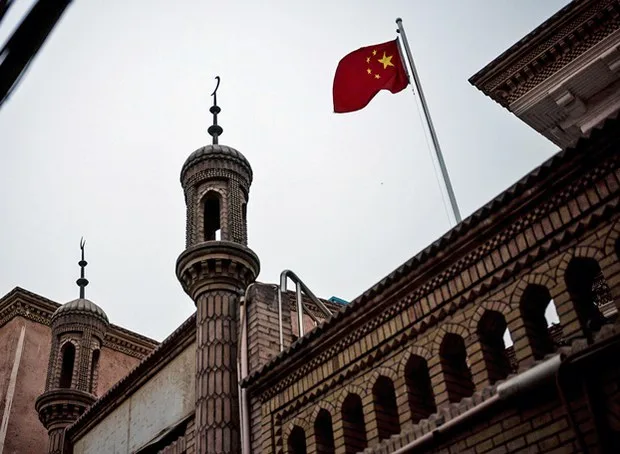China has been systematically changing the names of several villages in Xinjiang which have religious, historical, or cultural significance to the Uyghur community, Human Rights Watch reported on June 19, 2024. These names are being replaced with names reflecting the Chinese Communist Party ideology, it said.
“The Chinese authorities have been changing hundreds of village names in Xinjiang from those rich in meaning for Uyghurs to those that reflect government propaganda. These name changes appear as part of Chinese government efforts to erase the cultural and religious expressions of Uyghurs,” said Maya Wang, acting China director of the international non-governmental organization headquartered in New York City.
The HRW conducted joint research with Norway-based organisation Uyghur Hjelp (“Uyghur help”) and scraped names of villages in Xinjiang from the website of the National Bureau of Statistics of China between 2009 and 2023.
This research found that the names of about 3,600 of the 25,000 villages have been changed during these years. Some of these changed names appear to be mundane or a mere correction of previous names given incorrectly. But 630, of these changed names involve changes related to religion, culture, or history.
According to the HRW report, any mentions of religion, including Islamic terms, such as Hoja, a title for a Sufi religious teacher, and haniqa a type of Sufi religious building, have been removed, along with mentions of shamanism, such as baxshi, a shaman.
Additionally, any mentions of Uyghur history, including the names of its kingdoms, republics, and local leaders prior to the founding of the People’s Republic of China in 1949, and words such as orda, which means “palace,” sultan, and beg, which are political or honorific titles, have also been changed.
The authorities also removed terms in village names that denote Uyghur cultural practices, such as Mazar, shrine, and dutar, a two-stringed lute at the heart of Uyghur musical culture. While the renaming of villages appears ongoing, most of these changes occurred between 2017 and 2019, when the Chinese government’s crimes against humanity escalated in the region, mostly in Kashgar, Aksu, and Hotan.
Uyghur Help the partner in the joint research by the HRW interviewed 11 individuals to assess the impact of these changed names. In one case, a person after being released from a re-education camp found it difficult to reach back home after the name of the village was changed as no tickets could be issued to the village by which she remembered her hometown.
Another villager said he wrote a poem and commissioned a song to commemorate all the lost locations around where he had lived.
While quoting Article 27 of the International Covenant on Civil and Political Rights, which China has signed but not ratified the HRW report claimed “In those States in which ethnic, religious or linguistic minorities exist, persons belonging to such minorities shall not be denied the right, in community with the other members of their group, to enjoy their own culture, to profess and practice their own religion, or to use their own language.”
Previously in May 2014, the Chinese government launched the “Strike Hard Campaign against Violent Terrorism” in the Xinjiang Uyghur Autonomous Region. Since 2017, the Chinese government has carried out a widespread and systematic attack against Uyghurs and other Turkic Muslims in Xinjiang.
It includes mass arbitrary detention, torture, enforced disappearances, mass surveillance, cultural and religious persecution, separation of families, forced labour, sexual violence, and violations of reproductive rights. Human Rights Watch in 2021 concluded that these violations constituted crimes against humanity.
The Chinese government has continued to conflate Uyghurs’ everyday religious and cultural practices, and their expressions of identity, with violent extremism to justify violations against them. In April 2017, the Chinese government promulgated the Xinjiang Uyghur Autonomous Region Regulation on De-extremification, which prohibits “the propagation of religious fervour with abnormal names.”
“Authorities reportedly banned dozens of personal names with religious connotations common to Muslims around the world, such as Saddam and Medina, on the basis that they could “exaggerate religious fervour.”, the HRW report claimed.



















Comments